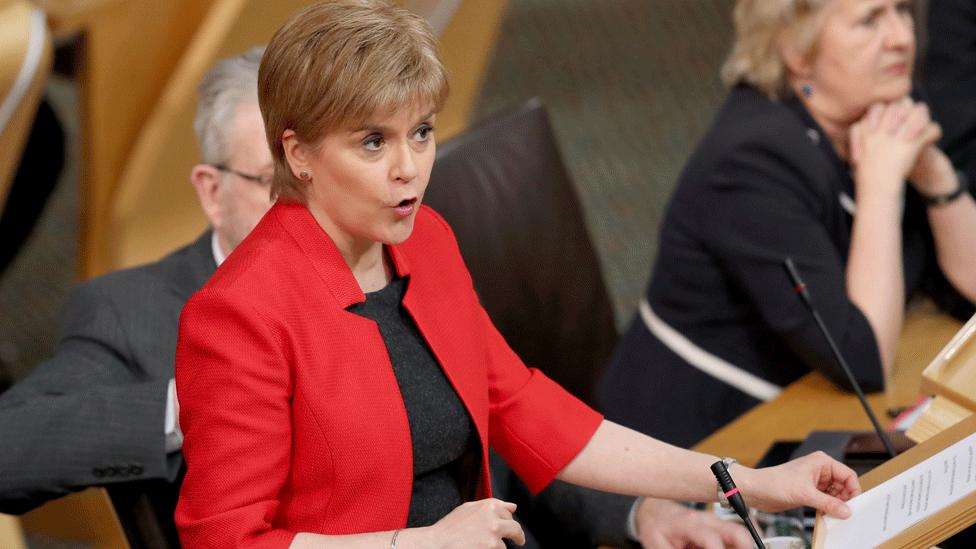Laying foundations ahead of crucial vote
- Published
The clock ticks closer to MSPs backing a bid to ask Westminster to hold a second Scottish independence referendum
There was much fevered talk of manifesto commitments and mandates during Day One of the referendum debate at Holyrood. (Or, more precisely, Day One of the demand for a Section 30 transfer of powers in order to hold such a referendum.)
However, party leaders seemed mostly keen to talk about promises delivered by their rivals - and the attendant mandates. Or their absence.
For example, Ruth Davidson of the Tories vehemently queried the right of the First Minister to be demanding Indyref2.
In the run up to the first vote in 2014, Ms Davidson recalled that the SNP had talked of a "once in a generation" opportunity. She recalled further that the Nationalists had ruled out a rerun in the absence of discernible public demand.
In response, the First Minister, Nicola Sturgeon, said it was the Tories who had created the rethink. She said it weighed heavily with her that she felt obliged to contemplate a further referendum which many didn't relish.
Ms Sturgeon insisted she had made repeated attempts to broker a compromise - for example, on Scottish membership of the single market. Each had been utterly ignored by the UK government. Her manifesto had indicated that Indyref2 would be feasible if Scotland were to be taken out of the EU against the evident will of her people.
The FM extended that argument into the realms of political philosophy. Team Sturgeon say the denial of a referendum goes to the heart of Scotland's status.
What of the mandate?
It used to be the case, they argue, that a mandate for independence was viewed as an SNP majority among MPs from Scotland. That has, of course, now been achieved - but, in the meantime, the criteria have palpably shifted, mostly at the behest of the SNP themselves.
The mandate is now, goes the argument, an SNP Scottish government with sufficient backing to ensure that a referendum on independence is offered to the people. In short, a Scottish Parliamentary vote.
Ms Sturgeon emphasised the point. If that was not now sufficient, then what was? What would constitute a trigger for the option of independence?
But the FM's rivals demurred. There had been no betrayal, they said. No constitutional crisis which demanded a referendum. Brexit, according to Kezia Dugdale of Labour, was not the motivation, "just the latest excuse."
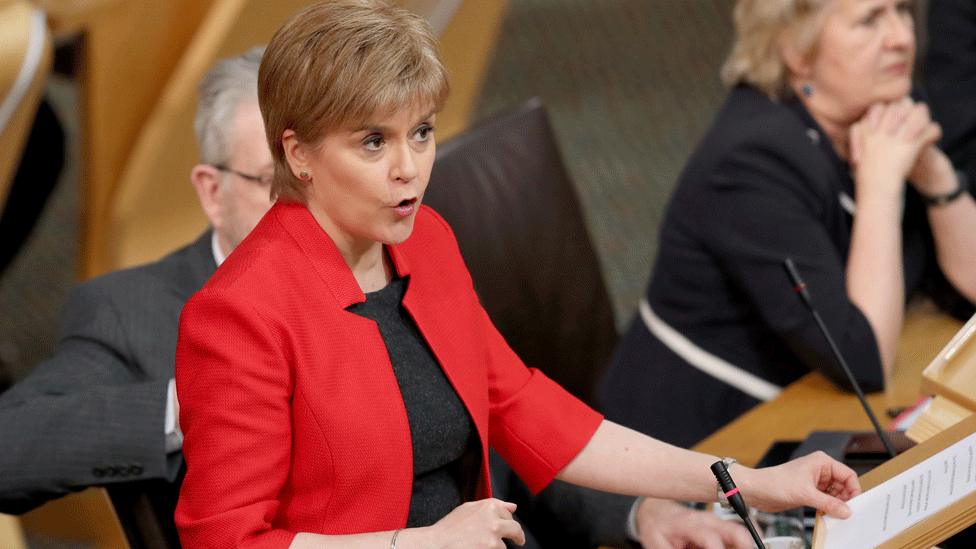
Nicola Sturgeon: "The future of Scotland should not be imposed upon us, it should be the choice of the people of Scotland."
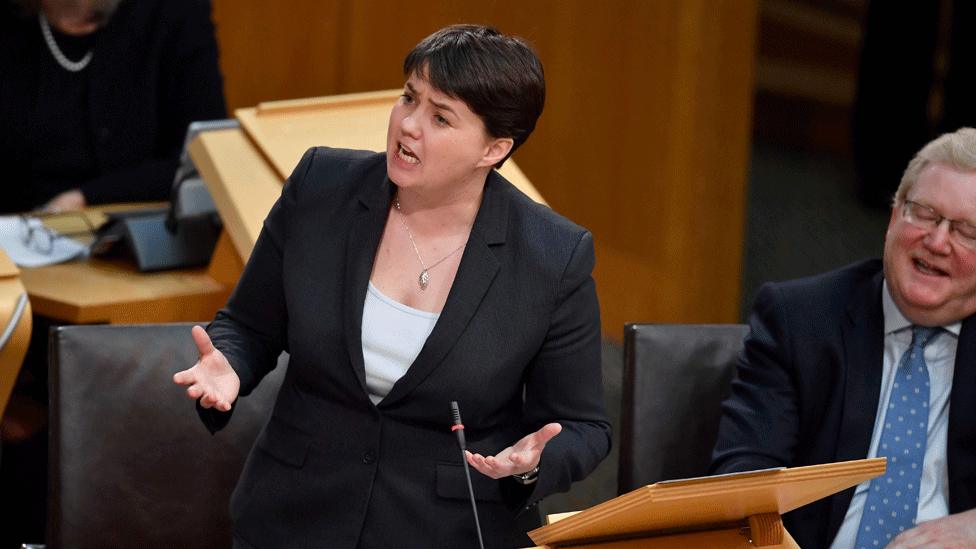
Ruth Davidson: "They don't want another referendum any time soon, just three years after the last one."
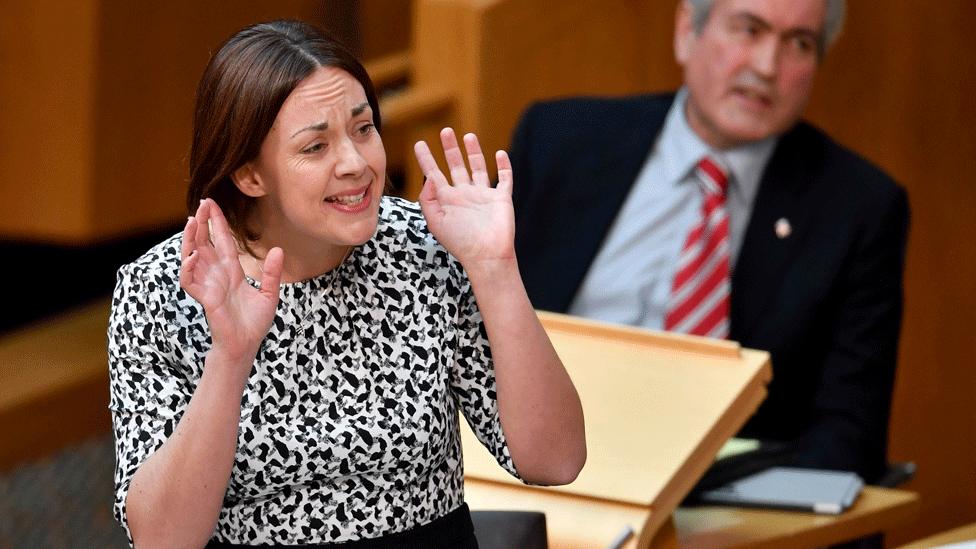
Kezia Dugdale: "I believe in the United Kingdom not as as a living, breathing union of nations that delivers for the people of Scotland."
However, challenges on promises worked the other way too. Ruth Davidson was repeatedly reminded that she had supported membership of the EU single market - and had continued to do so post the Brexit vote.
Her response? That the Prime Minister was actively seeking access to said single market.
And there was more. Patrick Harvie of the Greens was greeted with ironic groans when he rose to speak. He was then reminded of his party's manifesto which linked a rerun referendum to evident and growing public support.
Open debate
Mr Harvie was assertively dismissive. It would be "absurd", he said, not to recognise that politics had changed hugely as a consequence of the Brexit vote. Ignoring that would be to deprive the people of Scotland of a vital voice.
But Willie Rennie of the Liberal Democrats was unimpressed. There was no need for a rerun. It breached the Edinburgh Agreement, signed by Alex Salmond and David Cameron. In particular, it breached the clause promising to respect the outcome.
He turned that into another attack upon the Greens, again accusing them of breaching their manifesto approach. Cat-calling rivals shouted: "Tuition fees!"
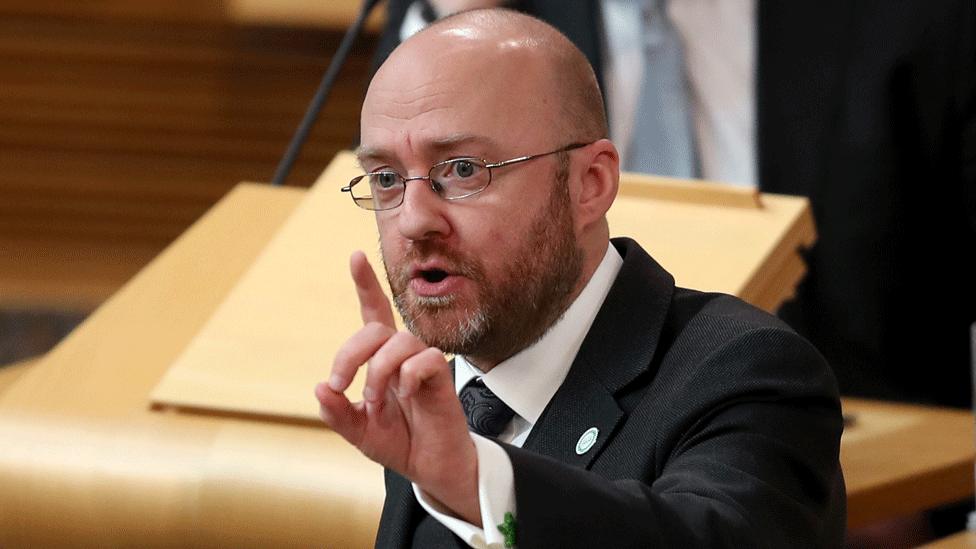
Scottish Greens co-convener Patrick Harvie said it was right to react to "fundamentally-changed" circumstances
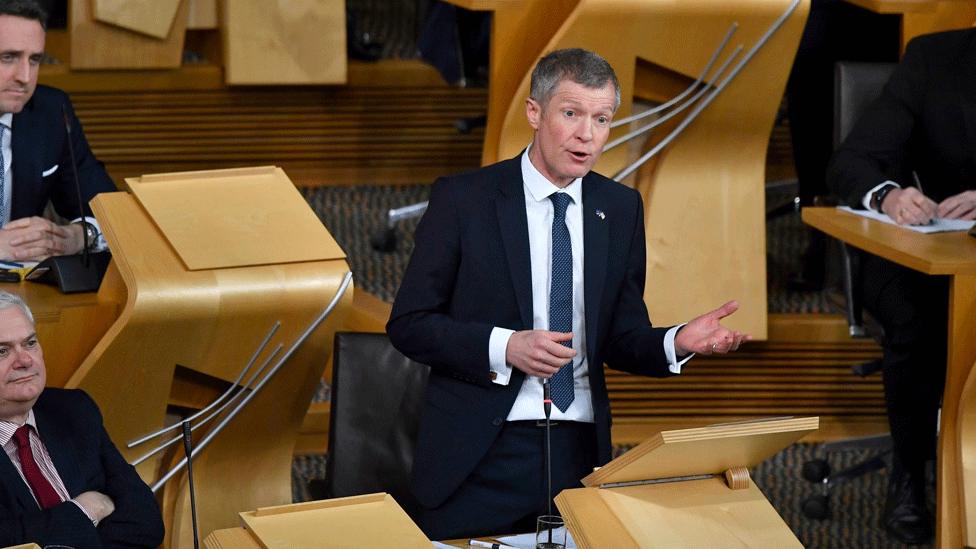
Scottish Liberal Democrat leader Willie Rennie said Holyrood had been "systematically undermined by the SNP"
It was an interesting debate - for all that Ruth Davidson said it was "groundhog day", with a foreshadowed outcome in that the Greens are set to back the SNP.
There was, however, relatively little that was novel. Perhaps that was to be expected, given that the parties' various positions are very well known and frequently expressed.
Today felt more like a staging post. To be clear, that is not remotely to dismiss the generic purpose and value of open debate. Nicola Sturgeon sees this debate - and particularly tomorrow's vote - as a crucial element in pressing the case for Scotland to have a choice, as she puts it.
Her rivals say two days of Holyrood time have been wasted. Both sides will now seek to convince the public - and then to deploy such support as they gain in advancing their arguments for and against Indyref2.
- Published21 March 2017
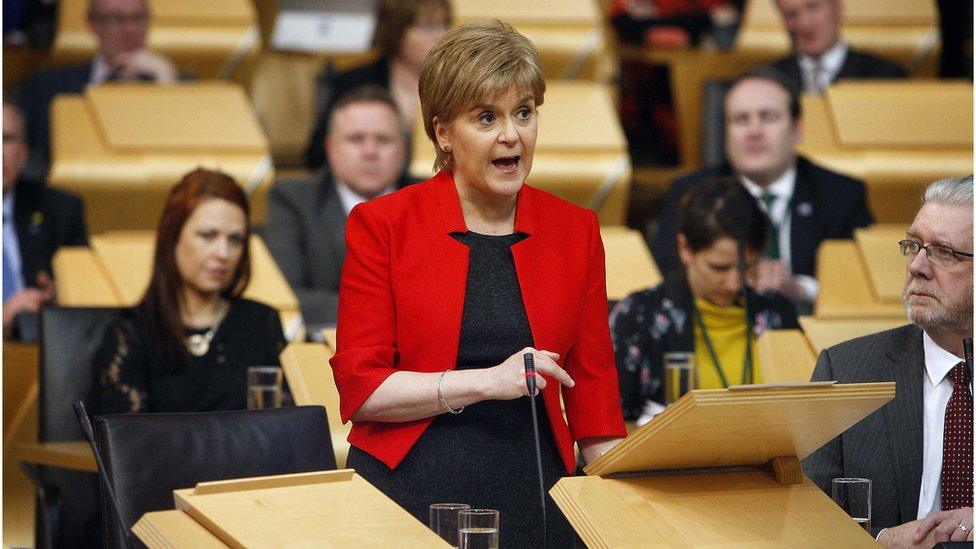
- Published20 March 2017
